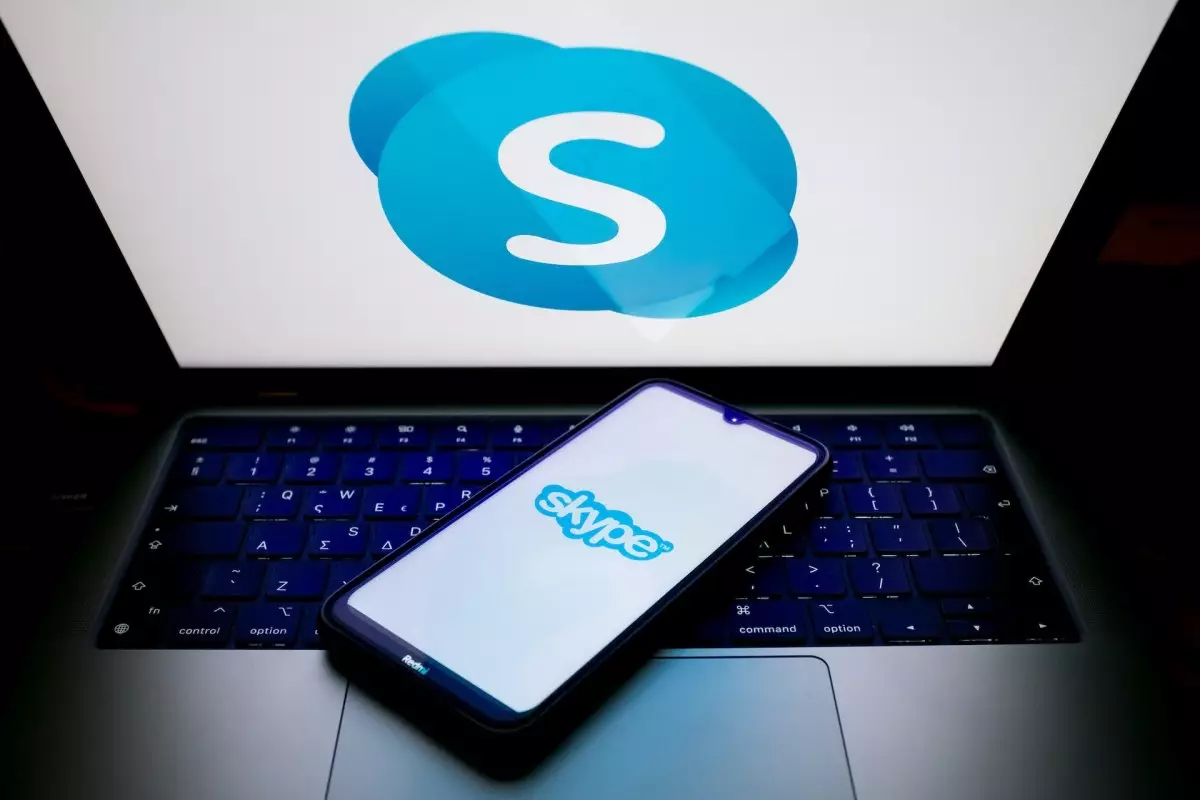After 23 years of bringing people together, Skype has officially announced its closure, marking the end of an era for many who relied on it for video communication. As of May 5, 2025, the familiar tones and pixelated images that have connected millions will fade into history. This decision by Microsoft, Skype’s parent company, is both a sad farewell for nostalgic users and a pivotal moment that signals a shift toward new technologies and communication methods.
For years, Skype was the go-to platform for video calling, enabling friends, families, and colleagues to stay connected across the globe. Offering benefits that allowed casual users and small teams to engage in seamless conversations, Skype carved out its niche in the ever-evolving landscape of digital communication. However, in the age of rapid technological advancement, it seems the writing was on the wall for this once-dominant player.
The Transition to Microsoft Teams
With the impending retirement of Skype, Microsoft urges users to transition to Microsoft Teams, a platform that focuses on business user functionalities but retains many familiar features from Skype. Users can migrate their contacts and chat histories, making for a smoother transformation. While Teams offers scalability for enterprise-level communication—accommodating up to 10,000 participants—it signals a shift in Microsoft’s vision for user interaction.
Microsoft’s push for Teams over Skype reflects a broader trend in communication software: a move toward centralized platforms that cater to workplace needs while also offering functionalities for casual users. While Teams has much to attract former Skype users—such as messaging, file sharing, and robust security—critics might argue that it lacks the personal touch that made Skype beloved. Teams often tends to favor the corporate user, which may alienate individual users in the process.
Preserving Valuable Connections
For those hesitant to embrace Microsoft Teams, it is essential to back up data from Skype. Users can export file histories, chat logs, and contact information, ensuring vital communication records are not lost forever. The migration process, while straightforward, underscores a larger concern in technology: the fear of losing cherished memories stored in chat histories and shared experiences.
This preservation effort speaks volumes about the growing importance of digital legacy. As we increasingly use platforms to connect, the transient nature of digital communication raises questions about what we choose to preserve and why. Ensuring our digital footprints are intact contributes to a sense of continuity, even when a favored platform goes dark.
Exploring Alternatives in a Crowded Market
As Skype takes its final bow, users now turn their attention to a myriad of alternatives competing for their digital communication needs. With options like Zoom, Google Meet, and Discord emerging, the landscape for video communication is vast yet overwhelming. Each platform offers its own set of features that cater to different users, yet these alternatives also reflect the evolving fabric of digital communication.
Zoom, already known for its robust meeting capabilities, has resonated particularly well during the pandemic era. Though the platform has faced scrutiny over privacy concerns, its user-friendly interface and features like breakout rooms have made it a staple for professionals and casual users alike. However, the downsides of time limits on free plans continue to stifle users who may need longer sessions—an issue many new users will contemplate as they consider their options.
Google Meet serves up another strong contender, particularly for existing Google users. With free access tied to Google accounts, it allows users to communicate seamlessly. However, its limitations prevent prolonged meetings, making it less appealing for larger or sustained discussions. Meanwhile, Discord, initially crafted for gamers, provides a unique avenue for informal conversations, but struggles to compete in professional environments due to its focus on smaller groups.
What the Future Holds
As we bid farewell to Skype, it’s essential to consider how digital communication will continue to evolve. The rise of alternatives speaks volumes about the demand for versatility and enhanced features that can cater to various users from casual friends to large corporations. As platforms diversify, interoperability will become increasingly important. The best solution may not be a single app, but an ecosystem of services tailored to different needs.
What’s clear is that as one chapter closes, another opens. The migration from Skype to more advanced solutions like Teams doesn’t just signify adaptation; it indicates a fundamental progression in how we’re using technology to forge and maintain connections. Ultimately, the landscape of communication will continue to transform—requiring us to adapt while keeping the essence of connection alive. Future platforms might surprise us yet, reimagining how we communicate, collaborate, and engage.

